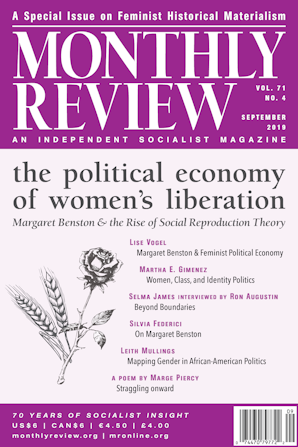Also in this issue
- The Political Economy of Women's Liberation
- She Was My Kind of Scientist: Margaret Benston and the Political Economy of Women's Liberation
- Women, Class, and Identity Politics: Reflections on Feminism and Its Future
- On Margaret Benston: The Political Economy of Women's Liberation
- Mapping Gender in African-American Political Strategies
- Straggling onward

